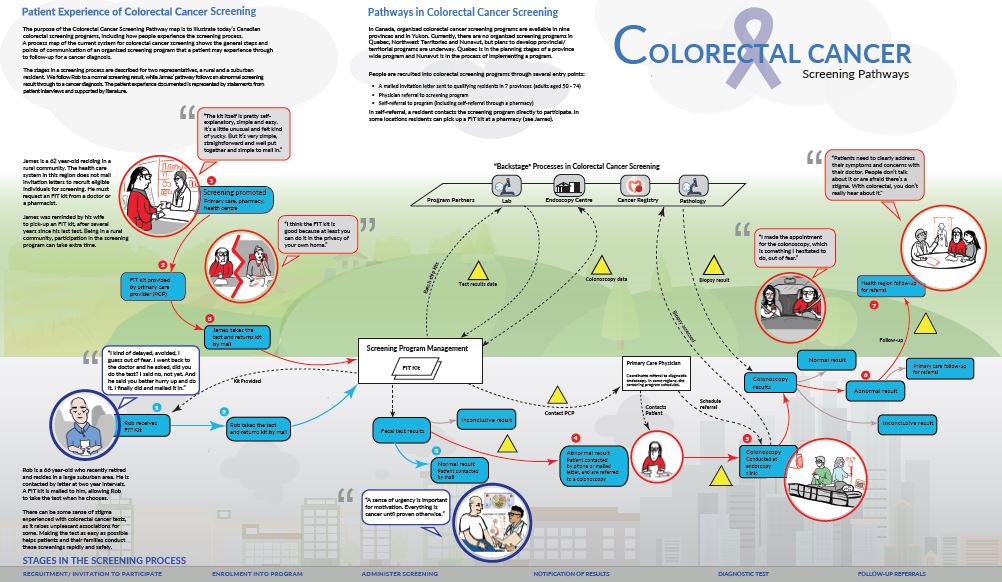Patient synthesis map about colorectal cancer screening
January 15, 2020
Review a synthesis map that shows the stages of the colorectal cancer screening process from both a rural resident’s and a suburban resident’s perspective
This map of the colorectal cancer screening process shows the general steps and points of communication that a patient may experience through an organized screening program, including follow-up for a cancer diagnosis. The map also defines terms, and includes challenges and barriers.

It shows Rob’s pathway to a normal screening result, and James’ pathway from an abnormal screening result through to a cancer diagnosis.
I think the FIT kit is good because at least you can do it in the privacy of your own home.
-James’ doctor
In Canada, nine provinces and one territory (all except Northwest Territories, Nunavut and Québec) offer organized colorectal cancer screening programs. Currently, plans are underway to develop organized colorectal cancer screening programs in the Northwest Territories and Québec.
The Canadian Task Force on Preventative Health Care guidelines recommends screening adults for colorectal cancer who are 50 to 74 years-old with FIT (Fecal Immunochemical Test) every two years or flexible sigmoidioscopy every 10 years.
How to empower patients
This synthesis map also shares the factors that empower patients:
- Co-ordinating services and communication between levels of care, like primary and specialized care, can improve continuity for patients. Doing so also offers a seamless experience from screening through to diagnosis and treatment.
- Primary care plays an important role in making screening decisions, and can encourage patients to ask questions as well as take control over their screening. It’s helpful when a family physician communicates a sense of urgency.
- Multiple touchpoints with providers lead to more positive health outcomes.
- Screening programs can proactively remind patients and help build health literacy through direct communication by mail, phone and in person.
- Patient navigators can assist patients between the screening process’ stages.
- Social support from family, relatives and friends helps sustain a positive attitude toward cancer diagnosis.
Downloadable content
File size 2 MB
